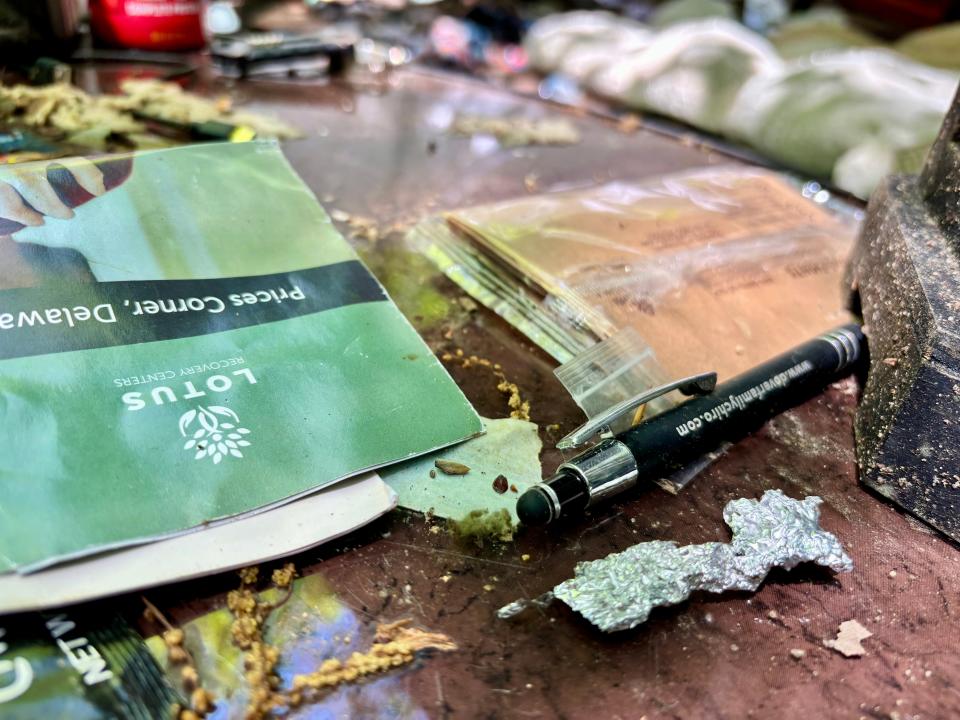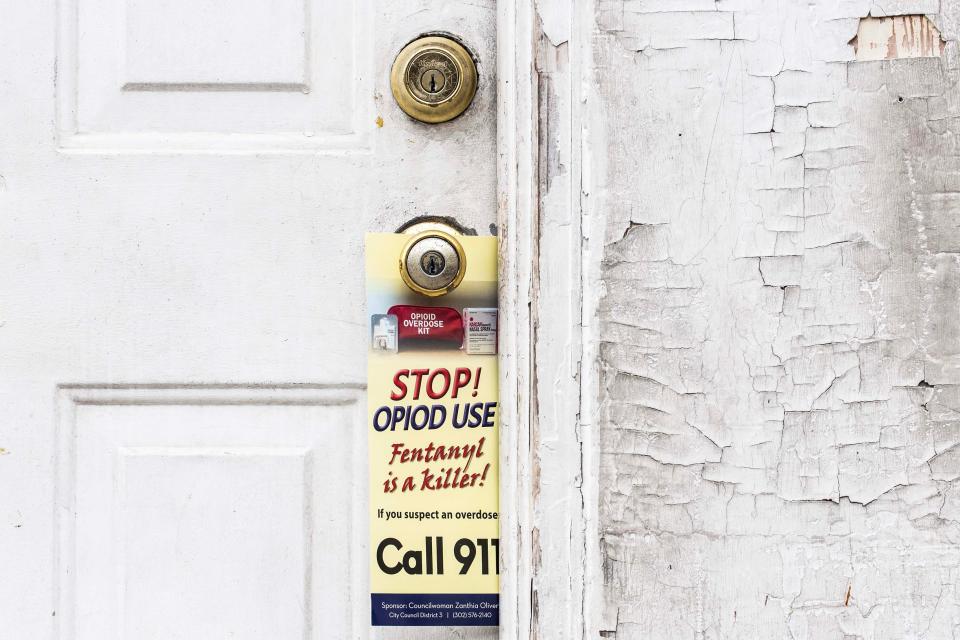Delaware faces housing and overdose crises. We are all responsible
Delaware is in a housingand overdose crisis, and — we all — are socially, morally and fiscally responsible for it.
Don’t believe me? Being unhoused/overdose can’t happen to me or my family, you’ve thought this far. But don’t you see? We all — are one to three paychecks away — from being unhoused in Delaware. We all — are one pill/line/shot away — from overdose in Delaware. Delaware has yet to embrace safer supply. But we have a choice to free ourselves. But we can’t free ourselves without reflection — and that reflection’s — action. We must set ourselves free through self-accountability.
We are socially, morally and fiscally obligated to solve Delaware’s housing/overdose crisis. You pass unhoused people and drug users every day. The person you sit next to in the classroom. The person you pass on the walk home from school. The person you pass on the drive to work. The person you pass walking from the parking lot to work. The person you look past, outside your window, when you gaze at the stars at night. You know you pass unhoused people and drug users multiple times a day, every day. Just like I do.
We all — are morally and socially complicit in Delaware’s housing/overdose crisis. And if that doesn’t hurt, your wallet pays for it. Your wallet pays for Delaware’s housing/overdose crisis to grow every year. What are you going to do about it? Are you going to keep gazing past every person you meet? Or are you going to check in on your neighbors? Let’s be of service.

If you won’t be of service to your community because you are morally and socially responsible: Be of service to your community like your wallet depends on it — because your taxes are paying for wasting tax money on a growing housing/overdose crisis that isn’t going anywhere — unless, you — do something about it.
Delaware: If you don’t change your community — no one will. If we don’t change our community — no one will. What are you doing to save others from Delaware’s housing/overdose crisis? You can start now, by asking how you can be of service. Your hearts and wallets are on the line.
Act like it, because “Xylazine, a non-opioid tranquilizer used as a sedative in large animals and more commonly known as ‘Tranq,’ has been a growing threat in Delaware. It causes infected wounds and severe respiratory depressions, regardless of how it’s ingested, and there is not yet an overdose-reversal medication for it.”

Delaware is allowing overdose to Xylazine to happen by not creating a Xylazine overdose medication. Instead of creating solutions in Delaware, the State of Delaware makes a political press conference that a 1.8% decrease in overdose deaths is a victory. There is no victory in the overdose crisis. Overdose and the overdose crisis, aren’t a game to strategize on when to make a move to save people’s lives. This is real life. We must wake up, Delaware. Does overdose have to destroy your family, like overdose destroyed my family, and thousands of families in Delaware for you to contact our representatives on pushing Delaware to create a Xylazine overdose reversal medication and institute safer supply? It doesn’t. We can change ourselves. We can change our community. We can change our city. Our three counties. The first state. We will change Delaware. Change in this country, and in our Delaware takes courage. We must have the courage to be ourselves. We must ask for help. We must ask others how we can help.
Jordan McClements: Can Delaware learn from Canada to solve our overdose crisis? Safer supply policy works
Delaware’s, current, six approaches (“reducing stigma, increasing screenings for opioid use disorder, educating healthcare professionals on medication-assisted treatment like suboxone, distributing the overdose-reversing drug Narcan, expanding street outreach, improving the state's addiction treatment service system”) to addressing addiction in Delaware are disappointing. Why? The reason Delawareans are overdosing is the supply is poisoned. None of those six approaches change that Delawareans are using a poisoned supply, and the State knows it. The only way to fix the overdose crisis is to offer safer supply. A 1.8% decrease in overdose deaths shows that we, and those six approaches to addressing addiction in Delaware, are inadequate for 98.2% of Delawareans in this Delaware overdose crisis. We must think and act beyond what is acceptable to experts trying to keep their job, first, and save Delaware, second, and politicians seeking reelection at the expense of the Delaware overdose crisis.
Fighting the Delaware overdose crisis isn’t about percentages. We are talking about saving our Delaware family. We are talking about saving human life. We all can change. We must change, Delaware. We must create a Delaware where people don’t have to use drugs. Let’s take care of each other. Let’s love one another, Delaware.
Jordan McClements is an overdose crisis journalist who will be attending Northwestern University’s Medill School of Journalism for his MSJ in Social Justice and Solutions Journalism this fall. Jordan survived overdose and lost his cousin to overdose. He resides in Felton.
This article originally appeared on Delaware News Journal: Delaware is in a housing and overdose crisis

